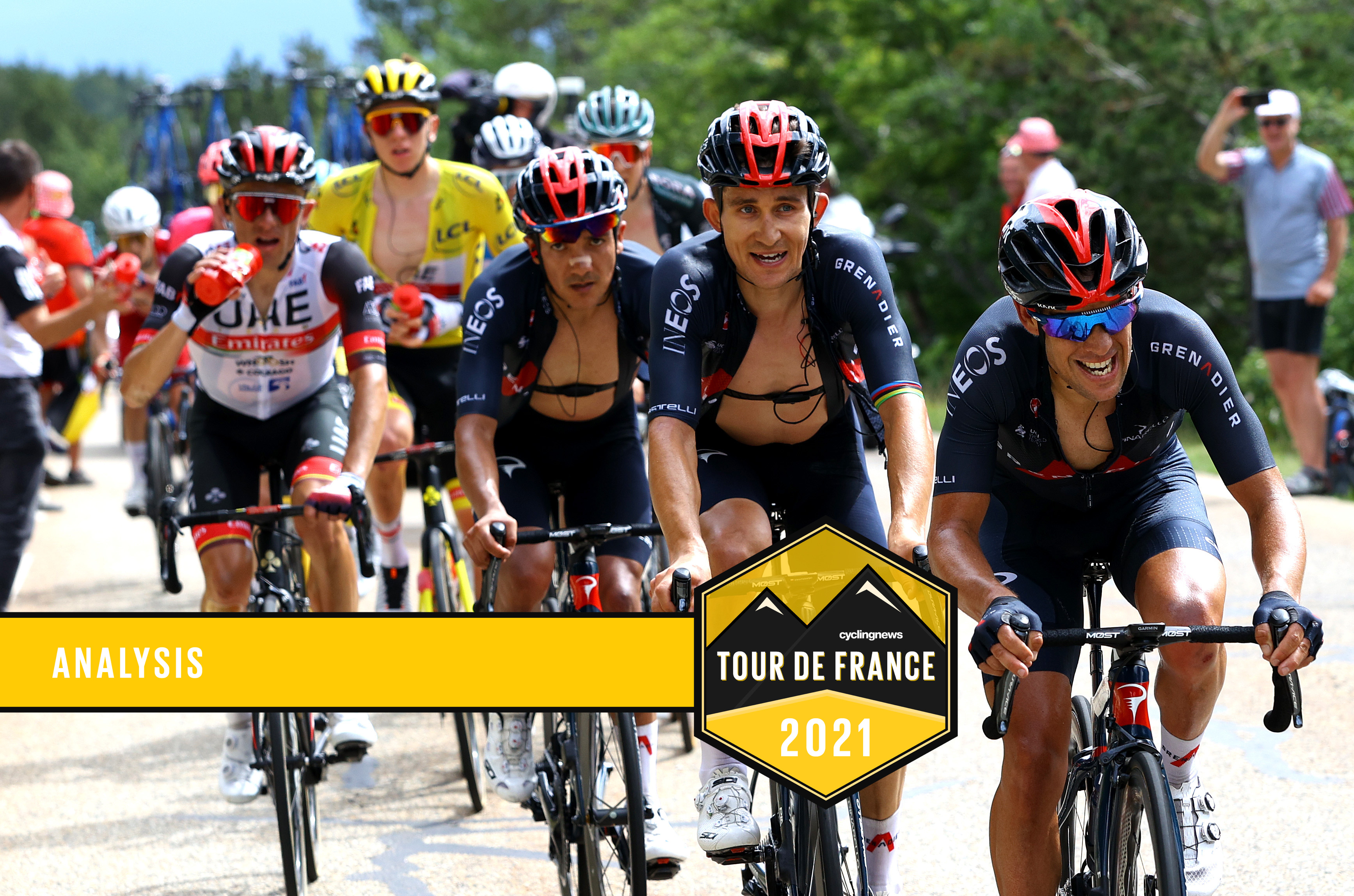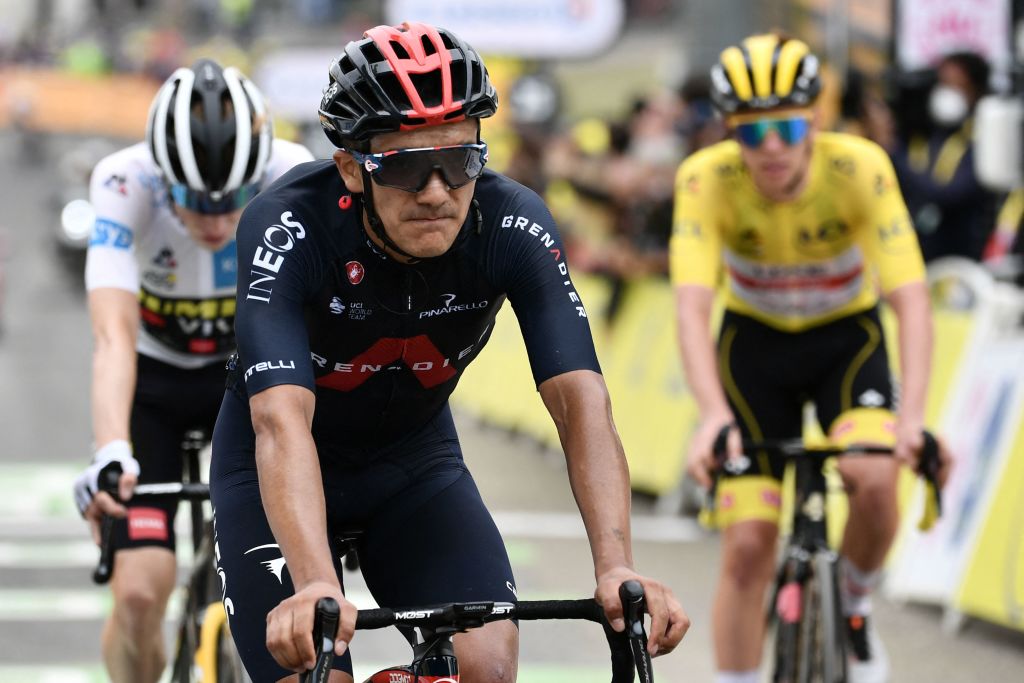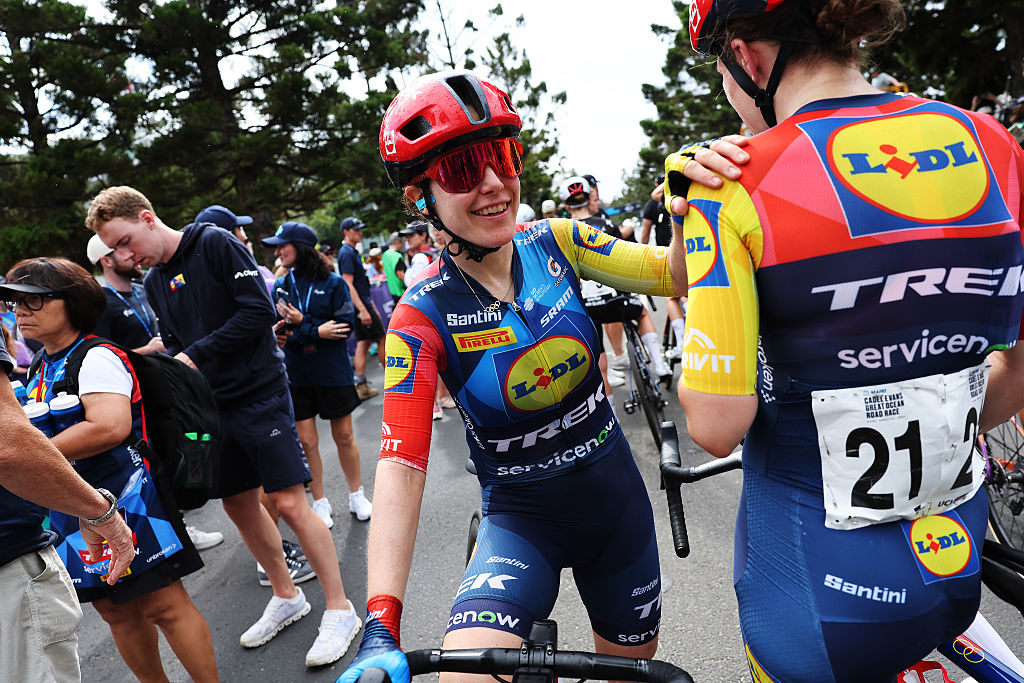Philippa York: Where now for Ineos Grenadiers after bruising Tour de France?
Pidcock is rising but Pogačar's brilliance will require a re-think

The latest race content, interviews, features, reviews and expert buying guides, direct to your inbox!
You are now subscribed
Your newsletter sign-up was successful
As the dust settles on the 2021 Tour de France, there are so many top teams having to ask themselves where it went wrong and what can they do to rectify the situation.
Of course, amongst the incidents and crashes of the opening days, there is some explanation as to why Tadej Pogačar (UAE Team Emirates) seemingly strolled to a second consecutive victory but that’ll be of little comfort to those who failed to meet the expectations they held at the start.
When pre-race contenders are crushed by the race or literally fall by the wayside, the debrief can be an uncomfortable place to be for all concerned.
What has become quite clear during the 2021 Tour de France is that the second crowning of Pogačar wasn’t in any way the surprise that his debut win was last year. There may have been murmurs that he somehow stole the 2020 edition from Primož Roglič (Jumbo-Visma) but that thinking can't remotely be applied this time around.
He was quite simply the best rider in the race and if that continues to be the case, which looks very likely, then it’s going to be difficult to overcome him in the future. The debate of whether UAE Team Emirates were capable of controlling the race or not was a distraction, and, to put it in really simple terms, the Tour de France is almost always won by the strongest rider. Whether you have a super team or an average one, tactics suddenly become a lot easier when you have the best rider in the race. What's more, as has been shown so often in the past, those teammates rise to the challenge of having the yellow jersey to defend.
It’s also good a time to remember that Pogačar is only 22 years old. He has still not reached his peak and that must be a scary proposition to consider when you are having to compete with him. Climbing ability, time trialling prowess, and the kick to sprint from a small group is fantastic combination. Most leaders will have a capacity of some sort to perform in all three areas but it’s pretty rare to find a rider who excels in each.
The question that began to be asked even before the final stages was: where do Ineos Grenadiers go from here?
The latest race content, interviews, features, reviews and expert buying guides, direct to your inbox!
Arriving at the start in Brittany with four protected riders, the tactics seemed fluid at best and confusing at worst. I’ve been wondering when was the last time the multiple-leaders scenario produced the goods and, from memory, it might just have been the 1985 Tour with Bernard Hinault and Greg Lemond. You could hardly say it was a harmonious atmosphere that reigned in the team during that race, and also the following year when the Frenchman 'aided' (his description, not mine) the American to his first of three overall wins. Aided would probably be better replaced by antagonised as far as I’m concerned but, as Hinault said at the end of the fractious alliance with Lemond, he was only making sure that Greg was good enough to be a winner.
So that brings us to look more closely at the British squad and their multitude of riches in the talent department. When it comes to stage racing, they won all the main preparation events heading towards the Tour de France, through Geraint Thomas at Romandie, Richie Porte at the Dauphiné, and Richard Carapaz at the Tour de Suisse. It was looking perfect, except that they hadn’t come up against Roglič or Pogačar in any of those.
They were good but the suspicion that good wouldn’t be enough against the Slovenians was quickly borne out when Pogačar won the first time trial and then handed everyone a lesson on the first mountain stage to Le Grand Bornand. By then, Thomas was damaged, Porte had settled into the support role he had returned to do, and Geoghegan Hart was looking more than a little shell-shocked with the level that exists at the Tour. Carapaz was left to take on Pogačar and gave it a go but was ultimately left behind as the Ecuadorian was out-climbed, out-sprinted, and comprehensively out-ridden against the clock.

When you add up all the positive and negatives of the Ineos Tour de France squad, you realise that there’s going to have to be changes if they are going to challenge the likes of the collective strength of Jumbo-Visma and the individual brilliance of Pogačar. The late-season position of the Tour in 2020 made UAE's recruitment process more difficult than usual for a team looking to strengthen in support of a Tour de France champion but that won’t be the case for them now. Good riders will want to be part of his future successes.
Jumbo-Visma had four stage wins and a second place on GC even when they had lost four riders, so the lament of being affected by the stresses of the Tour doesn’t ring true for every squad and certainly not the British-registered one with the big resources.
Maybe their organisation will be going through a restructuring with the news of Dave Brailsford’s health scares, but it’s fairly certain that they’ll have looked at how their best team performed at the Tour and realised that they need to start rebuilding a new core of riders that’ll be competitive on the biggest stage. That they never looked like winning a single stage is a damning conclusion that Jim Ratcliffe, the team owner, will have noted. He’ll be asking where his money went and wondering about the loss of momentum from a team known for planning ahead.
It’s not all doom and gloom, though, because next month Tom Pidcock makes his Grand Tour debut at the Vuelta a España and that will be an eagerly-awaited test for the young man who has shown he has the ability to compete on most terrains with the best riders. Egan Bernal's victory at the Giro d'Italia saves him from immediate embarrassment but how his back problems are resolved could be an issue and it's worth remembering he was under pressure in the final mountains of the Giro, suggesting he wasn’t quite the rider who everyone feared uphill.
The manner of Pogačar's victory at the Tour means that anyone hoping to compete with him is going to have to be excellent everywhere and especially on the big occasions.
Expect to see the Ineos chequebook coming out in the transfer season, and there could be some surprises. There was a rumour circulating amongst the Spanish media at the Tour that they might be interested in one Primož Roglič. He's not out of contract but then when has that mattered before? Wait and see.
The other great story of the 2021 Tour de France has been the return of Mark Cavendish, which has been an utterly captivating tale of success and suffering, emotion and execution.
The Manxman winning one stage seemed a possibility but equalling Eddy Merckx’s record of 34 Tour de France stage wins would have been a crazy idea at the start of the race. That Mark didn’t sprint to his 35th victory on the Champs Elysées and complete the fairytale resurrection just goes to show that every one of those previous wins was earned by doing everything at the right time with the right people. He’ll be back next year and you’ll get really really poor odds on him being part of any other team than the one run by Patrick Lefevere.
Tom Pidcock and Mark Cavendish may be at completely different points in their lives but they are equally inspiring to watch.
Philippa York is a long-standing Cyclingnews contributor, providing expert racing analysis. As one of the early British racers to take the plunge and relocate to France with the famed ACBB club in the 1980's, she was the inspiration for a generation of racing cyclists – and cycling fans – from the UK.
The Glaswegian gained a contract with Peugeot in 1980, making her Tour de France debut in 1983 and taking a solo win in Bagnères-de-Luchon in the Pyrenees, the mountain range which would prove a happy hunting ground throughout her Tour career.
The following year's race would prove to be one of her finest seasons, becoming the first rider from the UK to win the polka dot jersey at the Tour, whilst also becoming Britain's highest-ever placed GC finisher with 4th spot.
She finished runner-up at the Vuelta a España in 1985 and 1986, to Pedro Delgado and Álvaro Pino respectively, and at the Giro d'Italia in 1987. Stage race victories include the Volta a Catalunya (1985), Tour of Britain (1989) and Critérium du Dauphiné Libéré (1990). York retired from professional cycling as reigning British champion following the collapse of Le Groupement in 1995.

